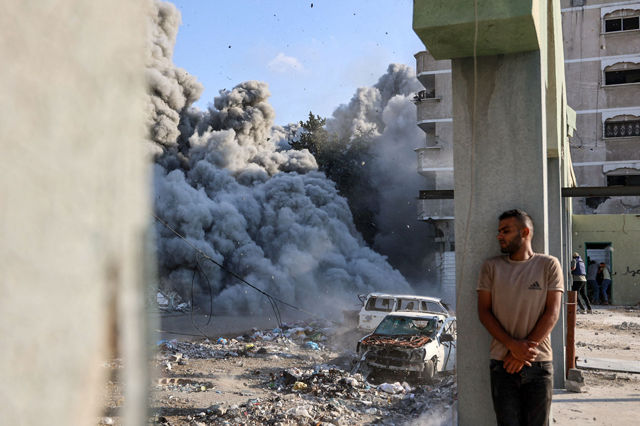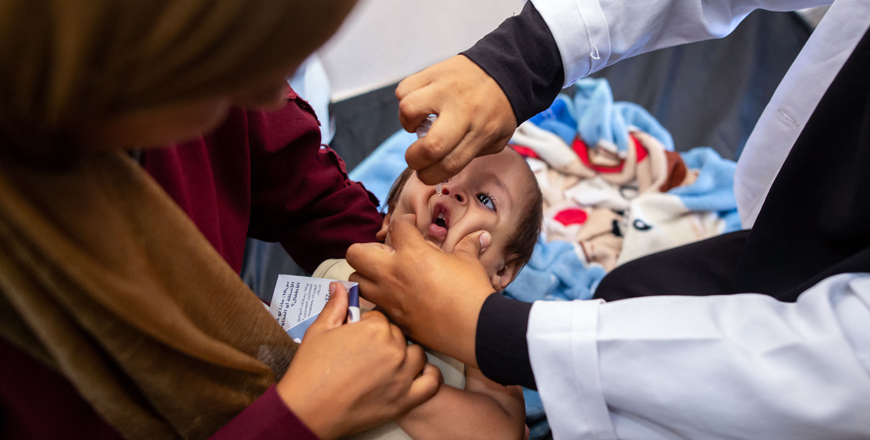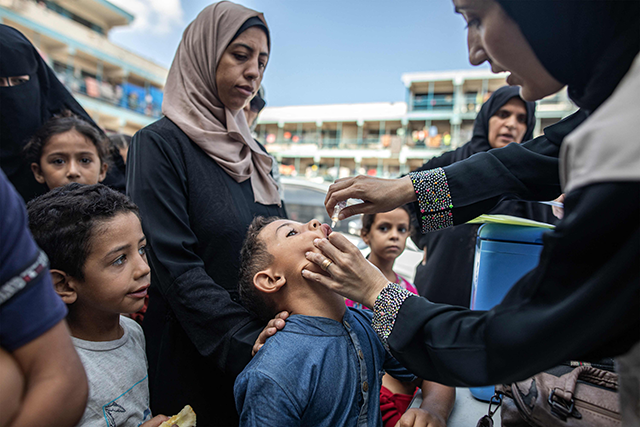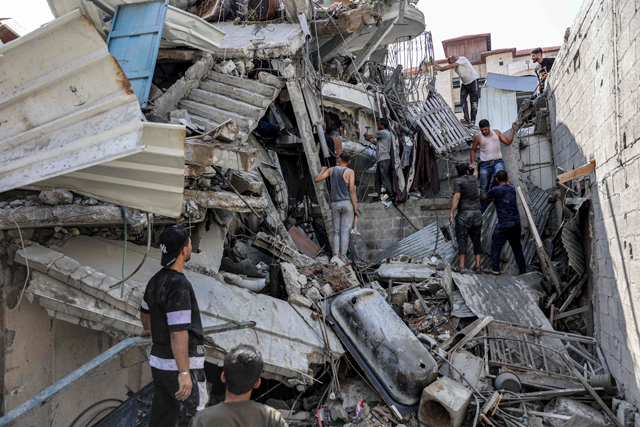GAZA STRIP, Palestinian Territories — A polio vaccination campaign officially began Sunday in the Gaza Strip where the United Nations has announced "humanitarian pauses" to allow for large-scale innoculation, a health official told AFP.
The campaign was announced after Gaza recorded its first polio case in a quarter of a century last month.
It officially began on Sunday in three health centres in central Gaza, a day after an unspecified number of children were vaccinated in the southern area of the Gaza Strip.
Children aged from one-day-old to 10 years arrived at the centres to receive the dose as drones flew overhead, said Yasser Shaabane, medical director of Al-Awda hospital in central Gaza said.
"There are a lot of drones flying over central Gaza and we hope this vaccination campaign for children will be calm," said Shaabane.
The campaign began at 9:00 am (0600 GMT), he said.
The World Health Organisation (WHO) said on Thursday that Israel had agreed to a series of three-day "humanitarian pauses" in northern, southern and central areas to facilitate vaccinations.
Israeli prime minister Benjamin Netanyahu however has insisted that these pauses were not amounting to any kind of ceasefire in overall fighting in Gaza.
The campaign aims to vaccinate more than 640,000 children in the besieged Palestinian territory, devastated by almost 11 months of war.
The campaign also aims to administer the first dose -- two drops -- to at least 90 percent of the territory's children.
Polio, which had been eradicated in Gaza for 25 years, reappeared in the midst of the hostilities that began on October 7 after Hamas attack on southern Israel.
WHO has dispatched 1.26 million doses of the oral vaccine to Gaza already.
The health ministry in Hamas-run Gaza has identified 67 vaccination centres -- mostly hospitals, smaller health centres and schools -- in central Gaza, 59 in southern Gaza and 33 in northern Gaza to administer the doses.
The second dose of the vaccine must be given four weeks after the first.
West Bank assault
While fierce fighting raged ahead of the hoped-for pauses, Israel pressed on with a large-scale military operation in the occupied West Bank.
A local official said Israeli occupation forces had destroyed most of the streets while power and water had been cut off.
Clashes and explosions persisted in Jenin, and both the health ministry and the Red Crescent reported two more Palestinians killed there.
At least 22 Palestinians have been killed by the Israeli military since Wednesday in simultaneous raids in several cities across the northern West Bank.
Hamas and Islamic Jihad have said at least 14 of the dead were members of their armed wings.
Since Friday, Israeli troops have concentrated operations on Jenin and its refugee camp, a densely-populated community which has long been a bastion of Palestinian armed groups.
Visiting the city Saturday, Israeli military chief of staff Herzi Halevi said his forces "have no intention of letting terrorism (in the West Bank) raise its head" to threaten Israel.
Early Saturday, an AFP photographer in Jenin reported ongoing clashes and said the streets were mostly empty.
"I think it's the worst day since the start of the raid," said Jenin Government Hospital director Wisam Bakr.
Water and electricity were cut off from the hospital during the raid, forcing it to rely on a generator and water tank, he told AFP.
Later Saturday, Bashir Matahine from the Jenin municipality told the official Palestinian news agency Wafa that electricity and water "are completely cut off" in Jenin refugee camp and that "80 percent" of the city's neighbourhoods no longer have water.
He said Israeli bulldozers had dug up 70 per cent of the streets, "destroying the water and sewage networks, as well as cables for electricity and telecommunications".
Violence has surged in the West Bank since Hamas's October 7 attack.
The United Nations said Wednesday that at least 637 Palestinians had been killed in the territory by Israeli troops or settlers since the Gaza war began.
Twenty Israelis, including soldiers, have been killed in Palestinian attacks or during army operations over the same period, according to Israeli official figures.
Britain, France and Spain have all expressed concerns about Israel's West Bank operation.




















